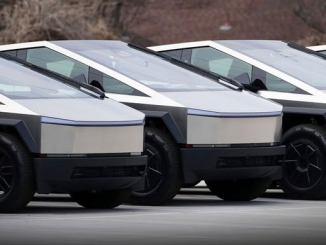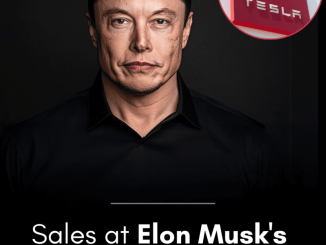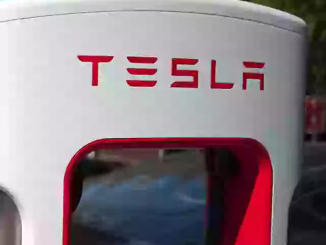Elon Musk, one of the most iconic and transformative figures of the 21st century, is a living symbol of innovation, determination, and relentless ambition. Born in Pretoria, South Africa, Musk’s journey from a curious child with a fascination for science fiction to the founder of multiple revolutionary companies—including SpaceX, Tesla, Neuralink, and The Boring Company—has captivated the imagination of millions around the world. His ultimate dream? To make life multiplanetary, with Mars as humanity’s next great frontier.
Early Life in South Africa: A Curious Mind Ignited
Elon Reeve Musk was born on June 28, 1971, in Pretoria, one of South Africa’s capital cities. From a young age, Musk exhibited an extraordinary interest in computers, technology, and space. At just 12 years old, he created and sold a video game called Blastar, showcasing his early talent for programming.

Growing up, Musk faced many personal and social challenges. He was often bullied at school and found solace in books and computers. He read obsessively, consuming everything from Isaac Asimov’s Foundation series to encyclopedias. These formative years built the foundation for his future ambition: to affect the world in meaningful and lasting ways.
From South Africa to North America: Chasing Opportunity
At the age of 17, Musk moved to Canada to attend Queen’s University, avoiding mandatory military service in South Africa. He later transferred to the University of Pennsylvania, where he earned degrees in both Physics and Economics.
But academia was only a stepping stone. Musk believed the internet, renewable energy, and space exploration were the future, and he wanted to play a central role in shaping them.
The First Ventures: Zip2 and PayPal
Elon’s entrepreneurial journey began in earnest with Zip2, a company he co-founded with his brother Kimbal. It provided city guides for newspapers and was eventually sold to Compaq for nearly $300 million in 1999.
With the proceeds, Musk co-founded X.com, an online payment company. After a series of mergers and transformations, it became PayPal, which was sold to eBay in 2002 for $1.5 billion in stock. Musk received $165 million from the deal—enough to fund his next, more audacious dreams.
SpaceX: Reaching for the Stars
In 2002, Elon Musk founded Space Exploration Technologies Corp., better known as SpaceX. His goal was simple but unprecedented: reduce the cost of space travel and eventually colonize Mars.
SpaceX’s early years were riddled with failures. Its first three launches failed, putting the company on the brink of collapse. But in 2008, the fourth launch succeeded, and NASA awarded SpaceX a contract that saved the company.
Over the next decade, SpaceX achieved one milestone after another: the first privately-developed liquid-fueled rocket to reach orbit (Falcon 1), the first private company to send a spacecraft to the International Space Station (Dragon), the first reusable orbital-class rocket (Falcon 9), and the powerful Starship project—designed specifically for Mars colonization.
Tesla and the Green Revolution
While leading SpaceX, Musk also took the reins of Tesla, a company focused on electric vehicles and renewable energy. Under his leadership, Tesla transformed from a niche startup into a global automotive and energy powerhouse. Its models—like the Model S, Model 3, and Model X—have redefined performance, safety, and the appeal of electric cars.
Tesla also introduced innovations like self-driving technology, solar panels, and the Powerwall—an energy storage system for homes and businesses.
Neuralink, The Boring Company, and Beyond
Never one to stop at two companies, Musk also launched Neuralink, aimed at connecting the human brain to computers, and The Boring Company, which seeks to reduce traffic congestion through underground transportation tunnels.
Each of these ventures aligns with Musk’s overarching mission: to solve fundamental problems and create a better future for humanity.
Mars: Humanity’s Next Great Adventure
For Elon Musk, Mars is not just a destination—it’s a mission of survival and expansion. He believes that becoming a multiplanetary species is essential for long-term human survival. Through SpaceX’s Starship program, he envisions cargo missions to Mars in the late 2020s and human settlements to follow shortly after.
His vision includes self-sustaining cities with domes, terraforming technology, and a society capable of surviving without Earth’s support.
Legacy and Impact
Elon Musk’s journey from South Africa to the stars is a testament to the power of vision, resilience, and action. Despite criticism, skepticism, and setbacks, he has consistently pushed the boundaries of what is possible.
Whether it’s revolutionizing transportation, reshaping energy consumption, exploring the human mind, or preparing for life on Mars, Musk has left an indelible mark on every industry he has touched.
His legacy is still being written—but one thing is certain: the story of Elon Musk is one of the most fascinating, inspiring, and ambitious narratives of our time.


